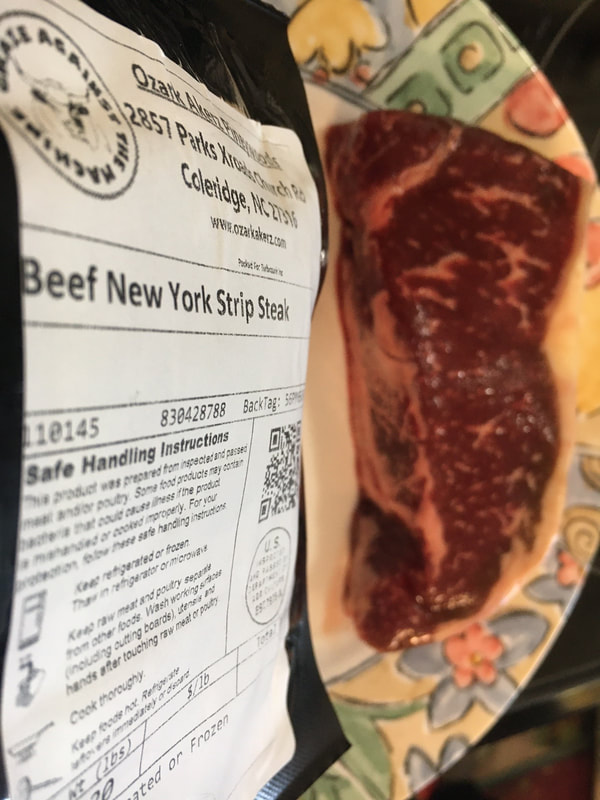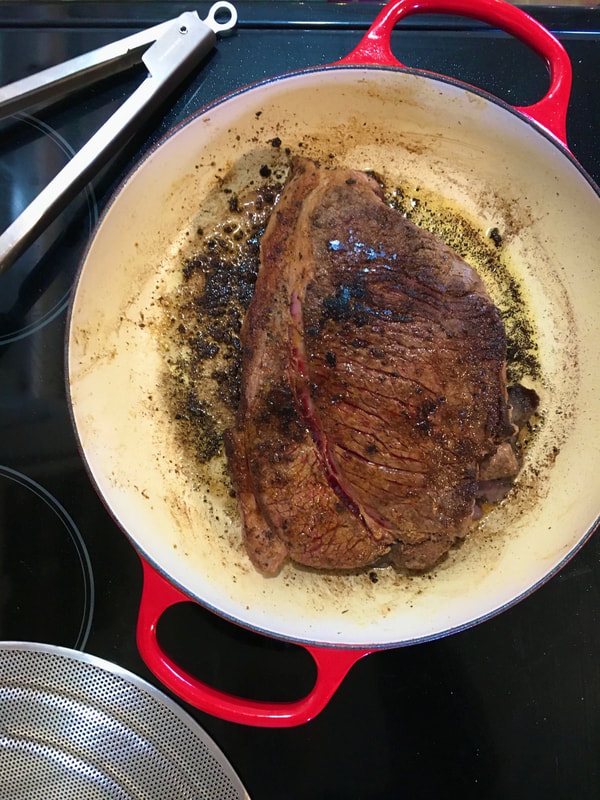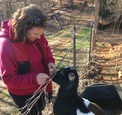Wild Foraged Pineywoods Beef - Choosing, Cooking, and Seasoning
There are a lot of different cuts of Heritage Pineywoods Beef and there are several personal factors that can effect your decision on which to choose.
In this post we share how to choose the cuts, the best way to cook them and seasonings to use to bring out the best flavor of wild foraged and dry-aged Pineywoods Beef from Ozark Akerz Regenerative Farm. What is Wild Foraged Heritage Pineywoods Beef?
0 Comments
The Best Pineywoods Beef Roast Recipe
One of my favorite Pineywoods roast recipes was inspired by Mike. He loves a red beer (beer, tomato juice, salt and pepper) on a hot summer evening. I had seen a recipe that added beer to the roast and another that added tomato paste stirred into water. I asked Mike if i should add beer or tomato paste to the roast, he said "why don't you add both.". What resulted was the most savory and delicious roast I have ever had.
There is a misconception that all grass fed and grass finished beef is dry and leathery. The truth is, it depends on a combination of things including the breed, the forages they have access to and the cooking method. Pineywoods Cattle ran wild for close to 400 years. The Pineywoods herd at Ozark Akerz thrives on wild growing grasses, herbs, shrubs, trees and weeds. The chefs and butchers we work with are consistently surprised by the marbling and flavor that our wild foraged and dry-aged Heritage Pineywoods Beef has. In fact, a butcher with 30 years experience who saw the marbling recently asked us how much grain we finished the cattle on. When we told him we don't feed them any grains, he asked what kind of fancy grass we had them on, he was equally surprised when we told him plain old fescue and the forages I mentioned above. With winter here, I'm ready to cook roasts again. The 100 year old farmhouse at Ozark Akerz is not the warmest place during the winter months. A flavorful cut of Heritage Pineywoods Beef roasting in the oven not only fills the house with a wonderful aroma, it helps keep the kitchen nice and toasty. Here's my recipe:
Brown brisket on all sides - you can also use chuck or rib roast. Browning the roast brings out a lot of flavor. This is known as the Maillard reaction. It is important to pat the roast dry prior to browning - otherwise the beef steams instead of brown. I've browned roasts in bacon grease, lard, tallow (beef fat) and schmaltz (chicken fat). They are all good! I've found that the best results occur over medium to medium high heat. This should be a slow browning process, so take your time and be sure each side is fully browned. Once browned, mix beer and tomato paste and pour over brisket. Season, cover and put in the oven at 350F for 3-3.5 hours. I find that the roasts turn out most juicy and tender when cooked in a Dutch oven, as good or better than a slow cooker. |
Categories
All
Archives
April 2024
Check out our YouTube channel
Copyright © Turboxark Inc 2014-2024 - Terms of Use
|




 RSS Feed
RSS Feed